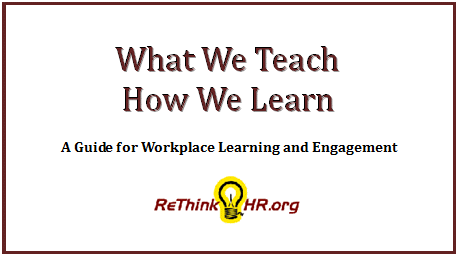 By now, everyone has watched the historic event that took place this past Sunday. The ups and downs, the emotional outburst, and fantastic inspiration that can only be described as history-making. Oh, you thought I was talking about Super Bowl XLIV. Ummm, no. What I am talking about is the new reality show Undercover Boss (@undercover_cbs & #undercoverboss) on CBS that had its debut right after the Super Bowl.
By now, everyone has watched the historic event that took place this past Sunday. The ups and downs, the emotional outburst, and fantastic inspiration that can only be described as history-making. Oh, you thought I was talking about Super Bowl XLIV. Ummm, no. What I am talking about is the new reality show Undercover Boss (@undercover_cbs & #undercoverboss) on CBS that had its debut right after the Super Bowl.
A brief synopsis of the show:
The new CBS reality series, Undercover Boss follows high-level chief executives as they slip anonymously into the rank and file of their companies. Each week the series, regular Sunday (9:00-10:00 PM, ET/PT) time period on Feb. 14, will have a different executive leave the comfort of their corner office for an undercover mission to examine the inner workings of their company.
While working alongside their employees, they will see the effects their decisions have on others, where the problems lie within their organization and get an up-close look at both the good and the bad while discovering the unsung heroes who make their company run. The first show was with Waste Management CEO Larry O’Donnell.
Great idea right? I think so. However, while there are some great influences and benefits that could come from a show like this, I do think there are ramifications and disadvantages if senior leadership (especially a CEO) were to go rogue in an undercover rotation within the “Real World” of their company. Business and Human Resource Departments and Companies have something to think about.
There are plenty of people that are probably weighing in on this subject. While I don’t have all the answers, in my opinion, here are a few thoughts:
What Would Work
- Listening: One item that I thought the show did a sincere job of was allowing Larry O’Donnell, the CEO, the chance to ask questions, get to know the employees from their perspective and LISTEN. The employees did not have any bias because they did not know he was the CEO. Larry was just some new guy and with that “new guy” perception, Larry was able to listen intently with no filter coming from the employee. If you as a senior executive cannot get your people to be honest with you, then how do you know what will truly work and be implemented from the glass ceiling to the concrete floor?
- From the Ground Level, UP: Building on the listening piece, if you as a CEO cannot relate or understand what your people do, how can you truly help the business? I am not saying that a boss or CEO should work within every position (that would be impossible and ludicrous to suggest). What I am saying is that he/she needs to be WILLING to ask questions and connect the dots to how each role within the company makes an impact to the overall business.Involvement: Any time you have someone shadow and truly get their hands dirty (like Larry O’Donnell actually did) in the day-to-day tasks of a job, it can help that person see what works and what doesn’t. It promotes understanding between front-line employees and senior executives of the company.
- Revamping Policy, Process & Procedure: From the involvement that leadership has in the job, they can help adjust and evaluate the legislation they create. These ACTIONS helps ensure that policy and procedure is not just being created for the sake of creating them. It ensures that those large manuals hidden within someone’s desk are being built in the best interest of the employee culture, supporting the company mission, and driving business viability so that all can stay safe, productive and employed!
- Communication: The CEO of Waste Management communicated to the employees his experiences and let them know that changes would be made. While it is unclear how these changes will truly be implemented within WM’s culture, policy and day-to-day life of the employee – the fact that communication took place is a key part to making the “Undercover Boss” work.
What Doesn’t Work
- Tailoring policy to individual opinion – There is a reason that policies are put in place and processes are set. Some people will gain and others will lose. If you changed policies, procedures and approaches every time someone complained or felt they were wronged then you would never get it right. I feel for people who are in tough situations but those tough situations are subjective and cannot be treated as if they are a mirror of the entire employee population.
- Do it for the right reasons not for PR: If you’re going to go rogue do it because it’s right as a whole, not for a PR image.
- Not all employee opinions are valid: We are all a genius in our own minds. Give respect, Research the situation and then Evaluate what should be done.
- Get the facts from trusted managers: There are times where Larry goes to the supervisors of the employees he has shadowed. His approach, while kind, almost undermines and disrespects the very authority that the CEO has given them. If a supervisor is doing stupid stuff then check them and discuss appropriate alternatives. However, undermining a manager’s authority is not cool. It waters them down and diminishes what credibility they may have had.
- “Can I count on you to get this done” : There is a point where Waste Management’s CEO, Larry O’Donnell goes to the supervisor and ask this question. All well and good but how many people would honestly challenge this question from their CEO. Some of us would but low level front-line managers will rarely ever feel empowered to question this. I mean come on, would you?
What are your thoughts?
- Great concept but how real could it be?
- I have always been a proponent of rotational roles within a company. What is your take?
You may also like the following:
Comments
Powered by Facebook Comments




Pingback: Carnival of HR - The Hangover Edition « TalentedApps
Pingback: The Things I've Learned Watching Undercover Boss — hr bartender